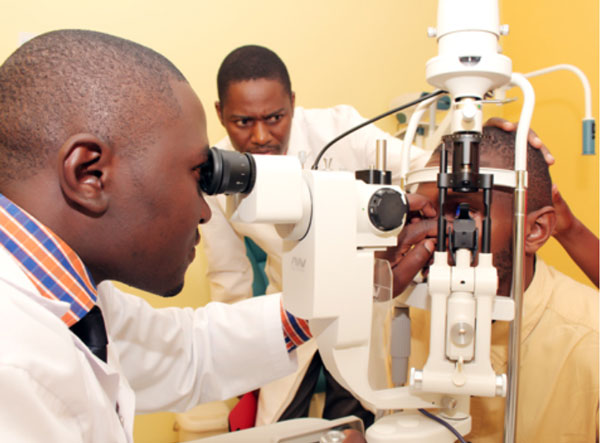
Kampala, Uganda | THE INDEPENDENT | Experts have raised a red flag against two popular eye drop brands Probeta and Dexamethasone, which are often applied to treat itchy eyes, discharges, pain and allergies. They say that the two have been found to cause permanent blindness.
Dr Anne Ampaire, an ophthalmologist said that such steroids are popular for their effectiveness in offering quick eye relief but are partly responsible for early onset of glaucoma that they are of recent seeing in patients below 40 years.
Dr Ampaire says that unless one is from a family with a history of glaucoma, people that mostly develop the disease are the ageing, a trend which is now changing. She was speaking during an eye screening event held to mark the annual World Glaucoma Week, at the Makerere University College of Health Sciences today.
Even as there are no up to date statistics about the disease, Ampaire says that glaucoma cases at the eye clinic in Mulago, are the most popular after cataracts. She says in fact that some people report to the clinic after several failed cataracts operations only to realize that they actually have glaucoma.
She says that a person with glaucoma suffers increased pressure within the eyeball which results in gradual painless loss of sight and that when one goes completely blind the condition becomes irreversible.
A fellow Ophthalmologist from the Uganda Ophthalmologists Society Dr Immaculate Atukunda says the challenge with the disease is that there are no signs and symptoms or early warnings especially for adults a reason it’s often referred to as a silent thief of sight.
Later, she says, the sufferer’s side vision is lost before turning into permanent sight loss. But, she adds that with early screening recommended annually, they can be able to detect the nerve damage and enrol the sufferer on drugs to keep the pressure in check.
However, Ampaire notes that with the habit of many not seeking annual wellness checks, they thought that sufferers would be identified and linked to care following tests done as one goes for their driver’s licenses but then she adds many people do not go for those tests neither.
The college of Health Sciences she says has previously done a study among drivers and found a significant number live with glaucoma but don’t know.
*****
URN
 The Independent Uganda: You get the Truth we Pay the Price
The Independent Uganda: You get the Truth we Pay the Price





